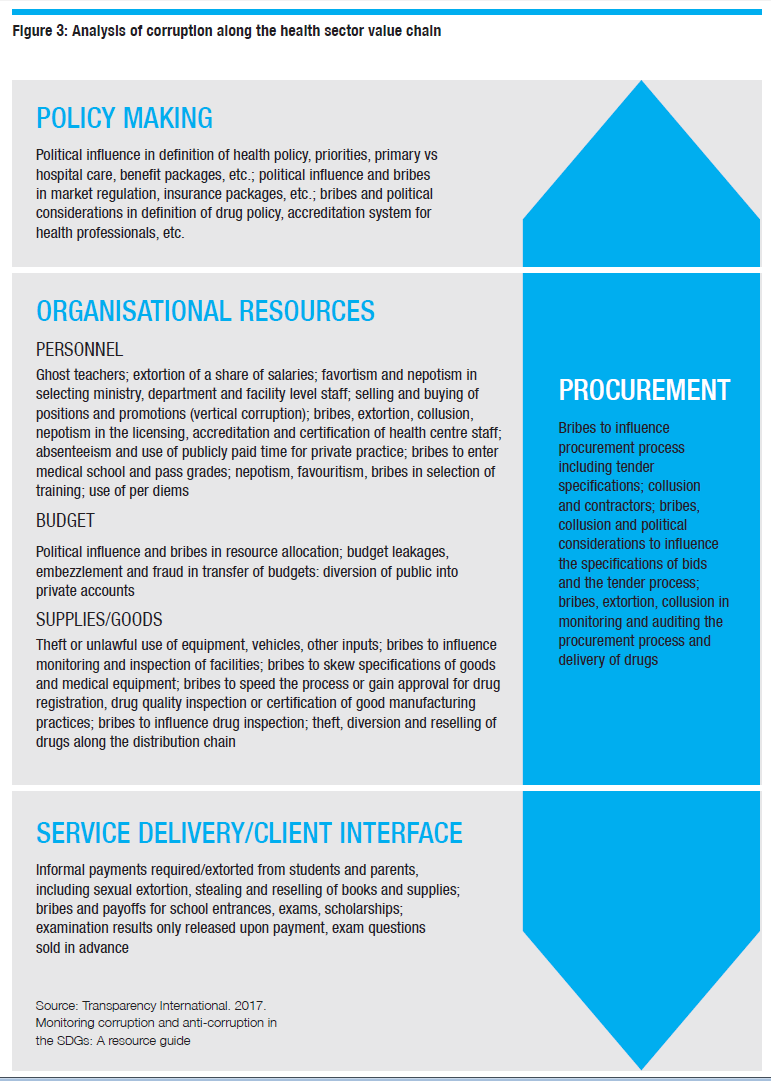Forms of corruption in healthcare
All major forms of corruption are present in the health sector, ranging from petty bribery and nepotism to informal payments and mismanagement of resources, absenteeism and state capture. In many countries, health services are also affected by various forms of clientelism as personal relationships between patients, doctors or even key bureaucrats help people gain access to healthcare programmes take the form of patron-client relationships.
Corruption can affect every stage of the health service delivery chain, including policy formulation, management of organisational resources and procurement of medical supplies, as well as bribery and extortion at the point of service delivery. Areas that are particularly vulnerable to corruption include:[1]
- provision of services by medical personnel
- human resources management
- drug selection and use
- procurement of drugs and medical equipment
- distribution and storage of drugs
- regulatory systems
- budgeting and pricing
As part of general healthcare reforms in certain regions, such as in Eastern and Southern Europe, other areas of vulnerability include the construction and equipping of new healthcare centres as public-private partnership projects, with specific corruption risks associated with such partnerships. Often these centres may become hotbeds of corruption when considering the types of machineries being purchased and used. In other countries, special healthcare programmes (such as prevention, monitoring and educational programmes) are not available to all, particularly not low-income and indigenous populations.[2]
These vulnerabilities across the health sector service delivery chain can be synthesised, as highlighted in the diagram below.

Footnotes
- [1]
Taryn Vian and Carin Nordberg. 2008. Corruption in the Health Sector 2008.
- [2]
Davide Torsello. 2016. Corruption In Public Administration: An Ethnographic Approach. http://www.e-elgar.com/shop/corruption-in-public-administration
Chapters
Author
Iñaki Albisu Ardigó; Marie Chêne
Reviewer:
Matthew Jenkins
Contributing experts:
Umrbek Allakulov (Water Integrity Network)
Shaazka Beyerle (US Institute of Peace)
Simone Bloem (Center for Applied Policy)
Claire Grandadam (Water Integrity Network)
Jacques Hallak (Jules Verne University – Amiens)
Mihaylo Milovanovitch (Centre For Applied Policy)
Muriel Poisson (International Institute for Educational Planning (IIEP-UNESCO)
Juanita Riano (Inter-American Development Bank)
Marc Y. Tassé (Canadian Centre of Excellence for Anti-Corruption)
Vítězslav Titl (University of Siegen)
Davide Torsello (Central European University Business School)
Patty Zakaria (Royal Roads University)
Date
01/09/2017
